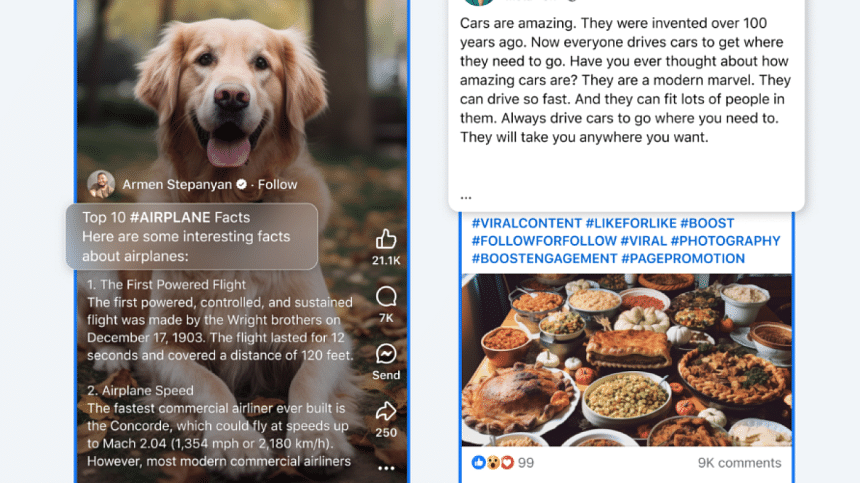Meta is cracking down on spammy content

Meta has announced a series of measures aimed at reducing the volume of spam-like content on Facebook, in an effort to improve user experience and support authentic content creators on the platform, according to a blog post by the company on April 24.
In the blog post, Meta acknowledged that Facebook's Feed does not always deliver the fresh and compelling posts users expect. In response, the company is targeting accounts that attempt to manipulate the algorithm to boost visibility, gain followers rapidly, or exploit monetisation features unfairly. These efforts, Meta stated, are intended to curb the spread of misleading and repetitive material that often crowds out original and meaningful posts.
Meta said it will now limit the reach of accounts that engage in so-called "spammy" behaviour such as sharing posts with unrelated captions or excessive hashtags. Such content will be restricted to the account's followers and will not be eligible for monetisation.
In addition, accounts found to be operating as part of spam networks—frequently characterised by coordinated sharing across numerous profiles—could face further penalties, including reduced visibility and removal from monetisation programmes, according to the blog.
In 2024, Meta says it removed over 100 million such pages and more than 23 million impersonator profiles mimicking large-scale creators. To further protect creators, Facebook's comment moderation tools now include the ability to auto-hide comments from suspected fake accounts and enable reporting of impersonators directly from comment sections. Meta also said that it is continuing to enhance 'Rights Manager' to help creators protect their original content.

 For all latest news, follow The Daily Star's Google News channel.
For all latest news, follow The Daily Star's Google News channel. 








Comments